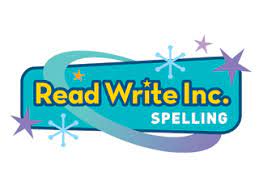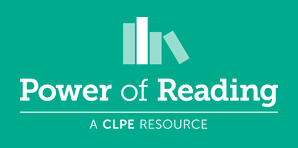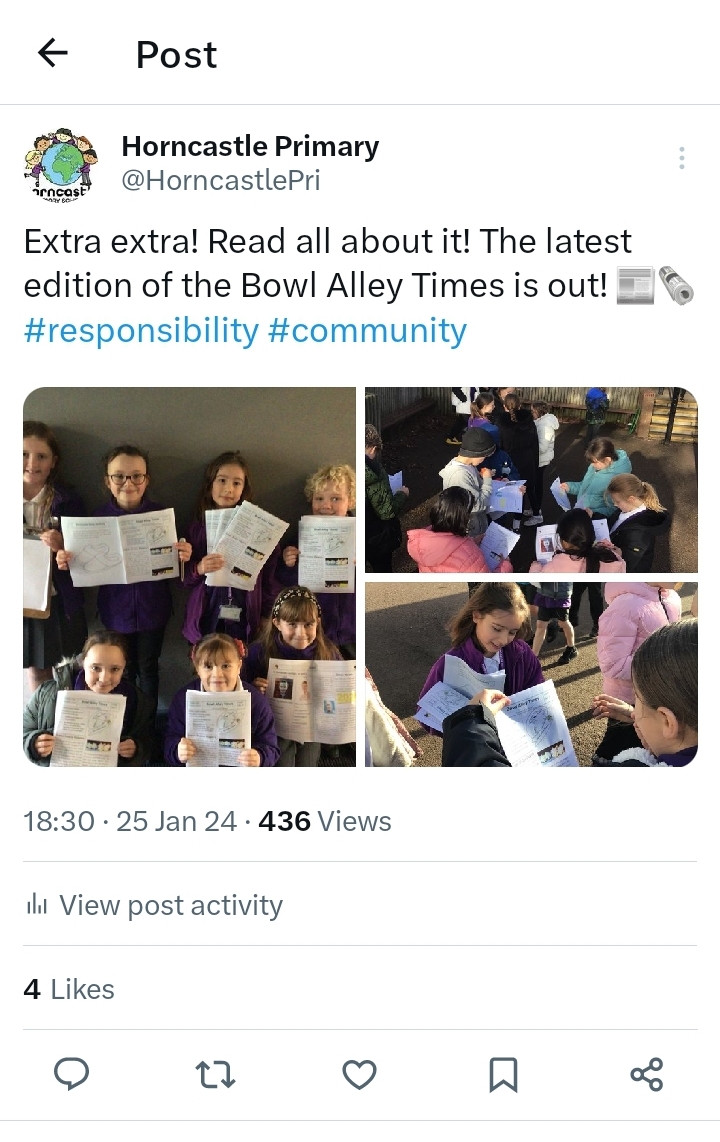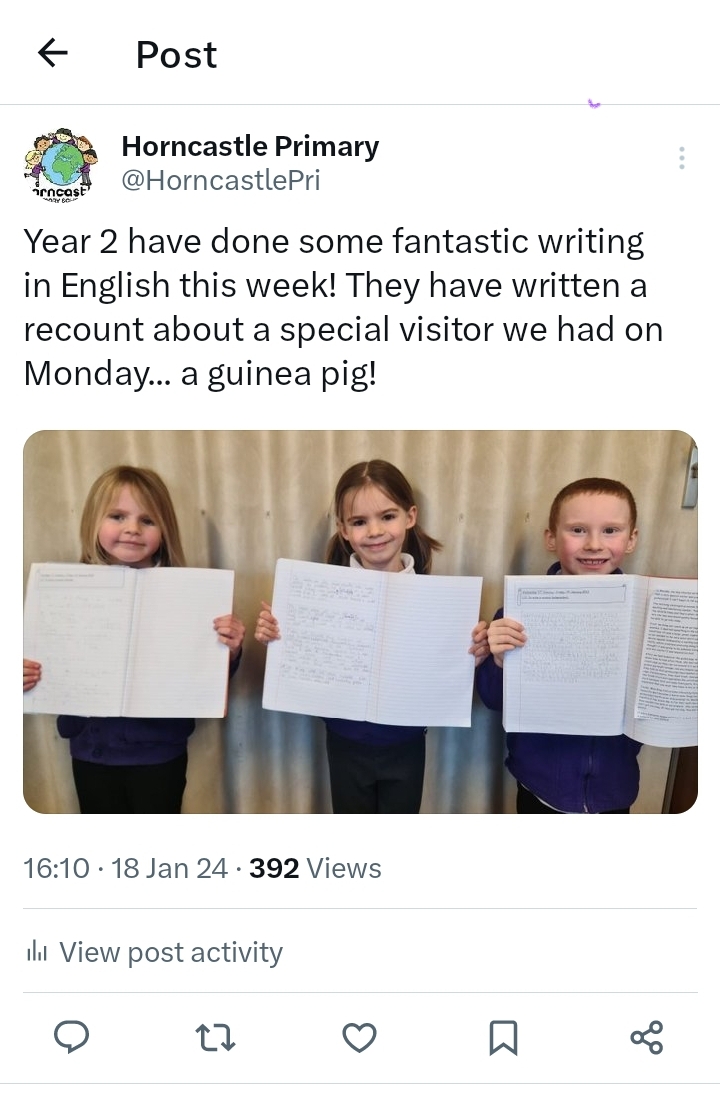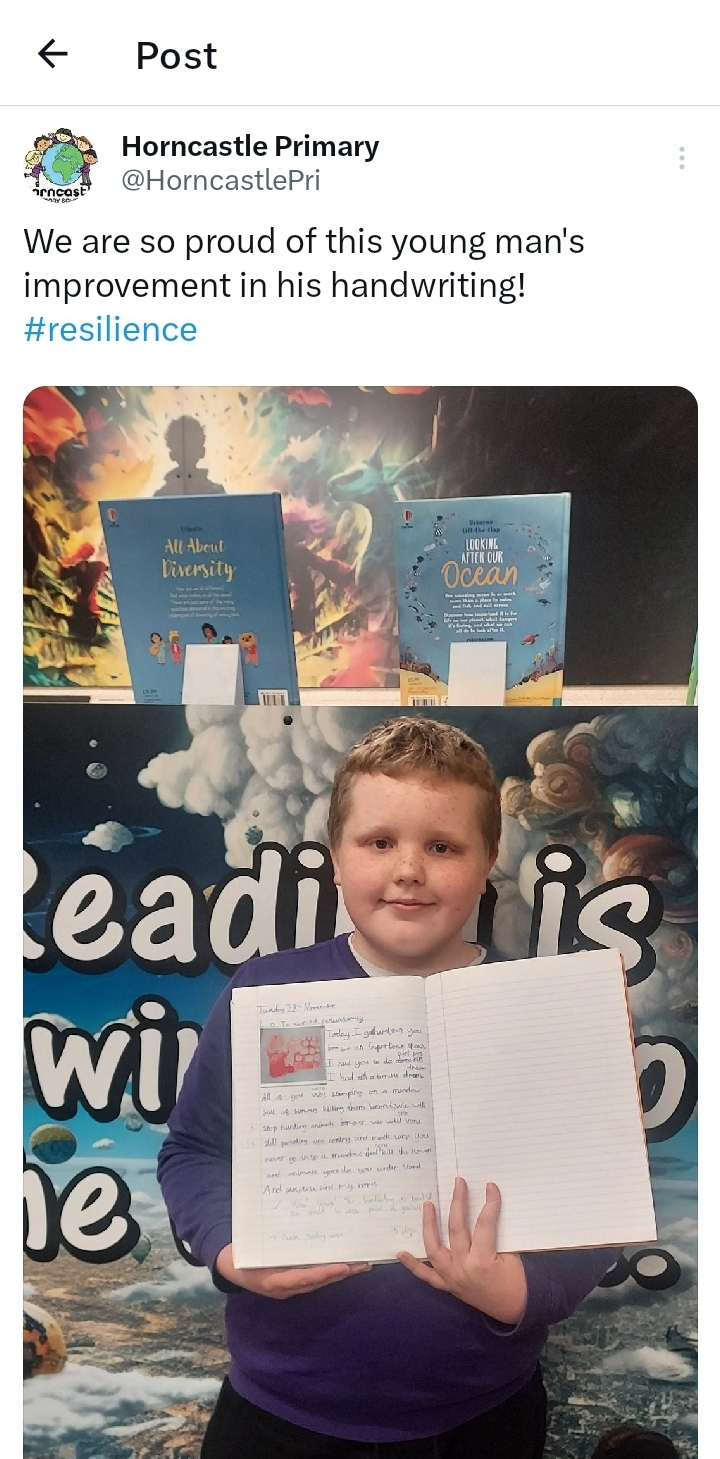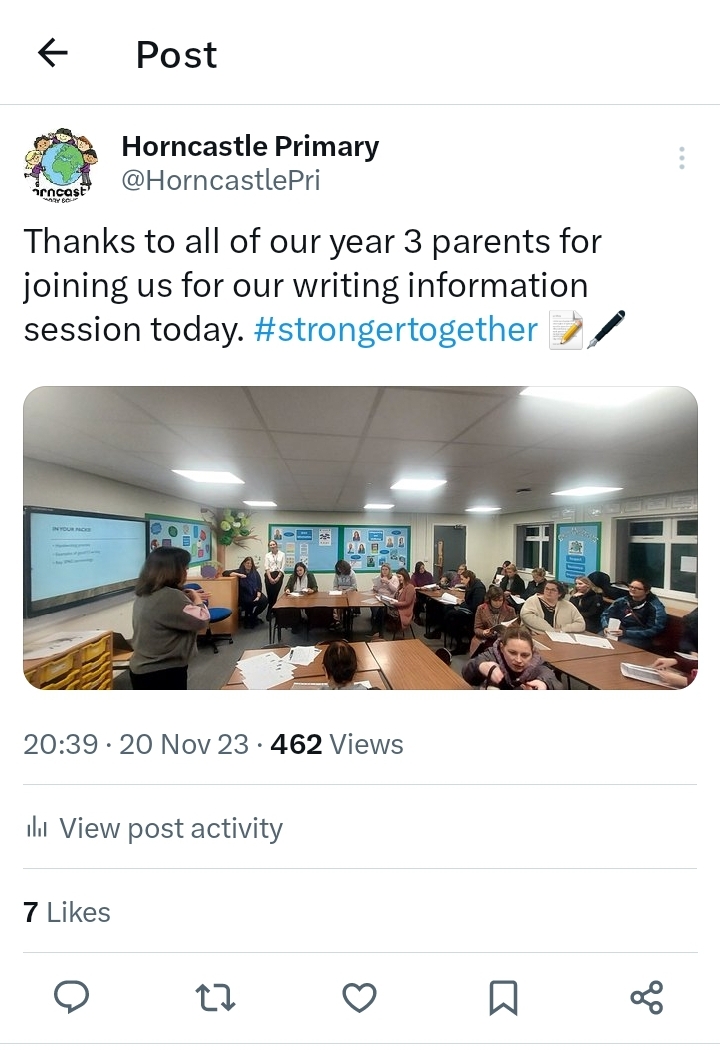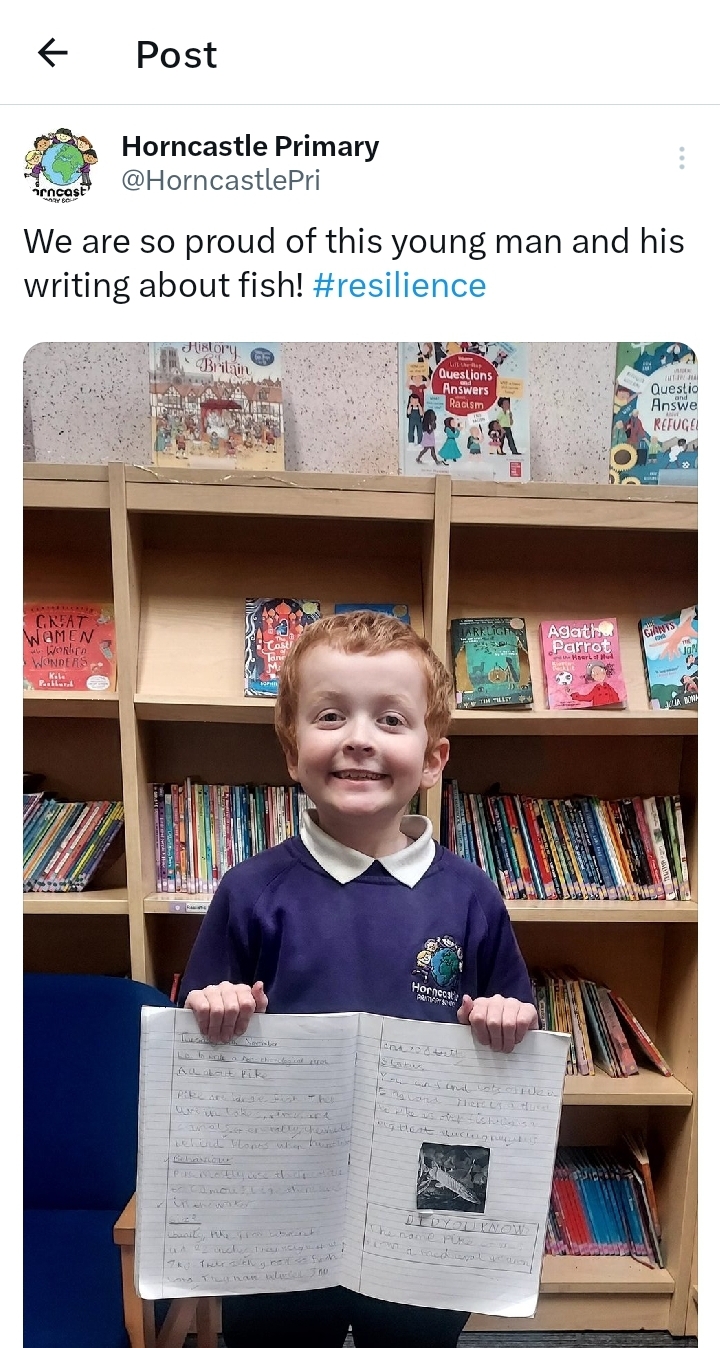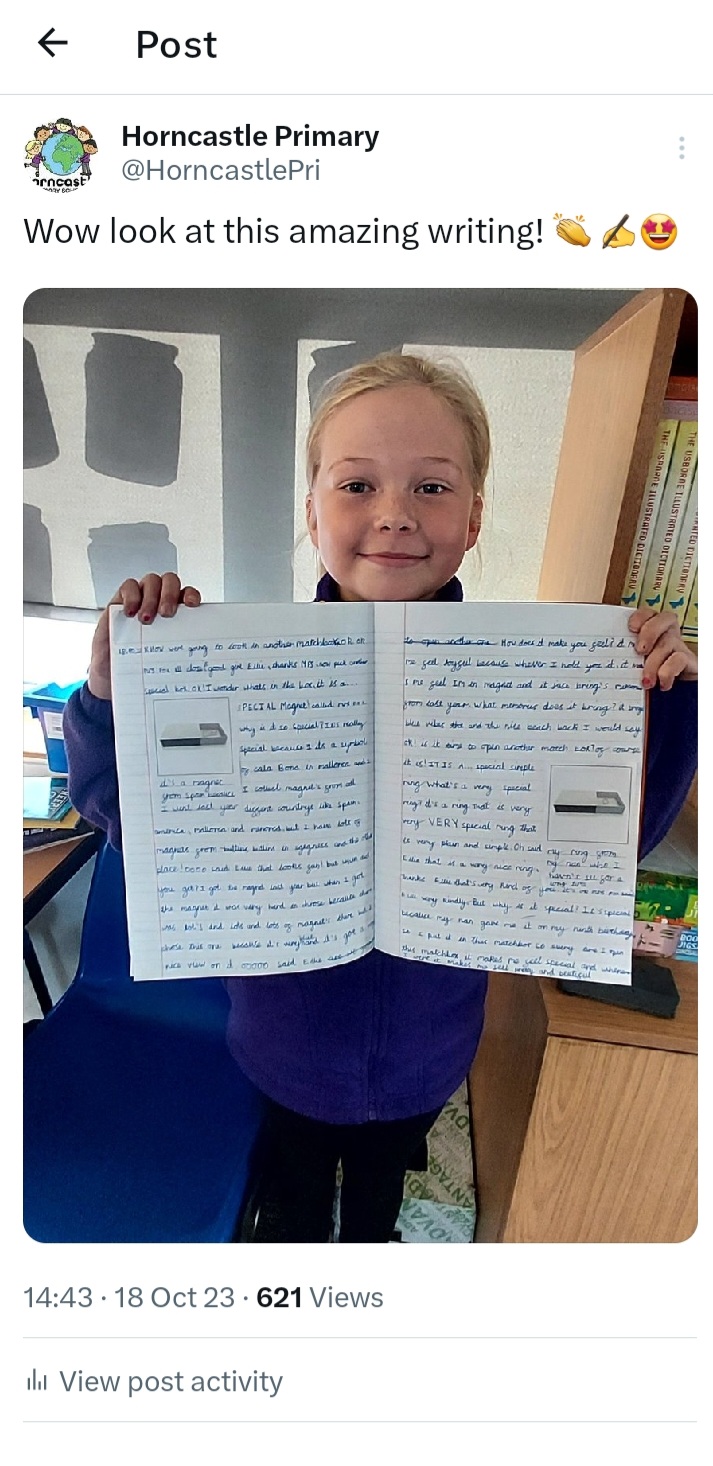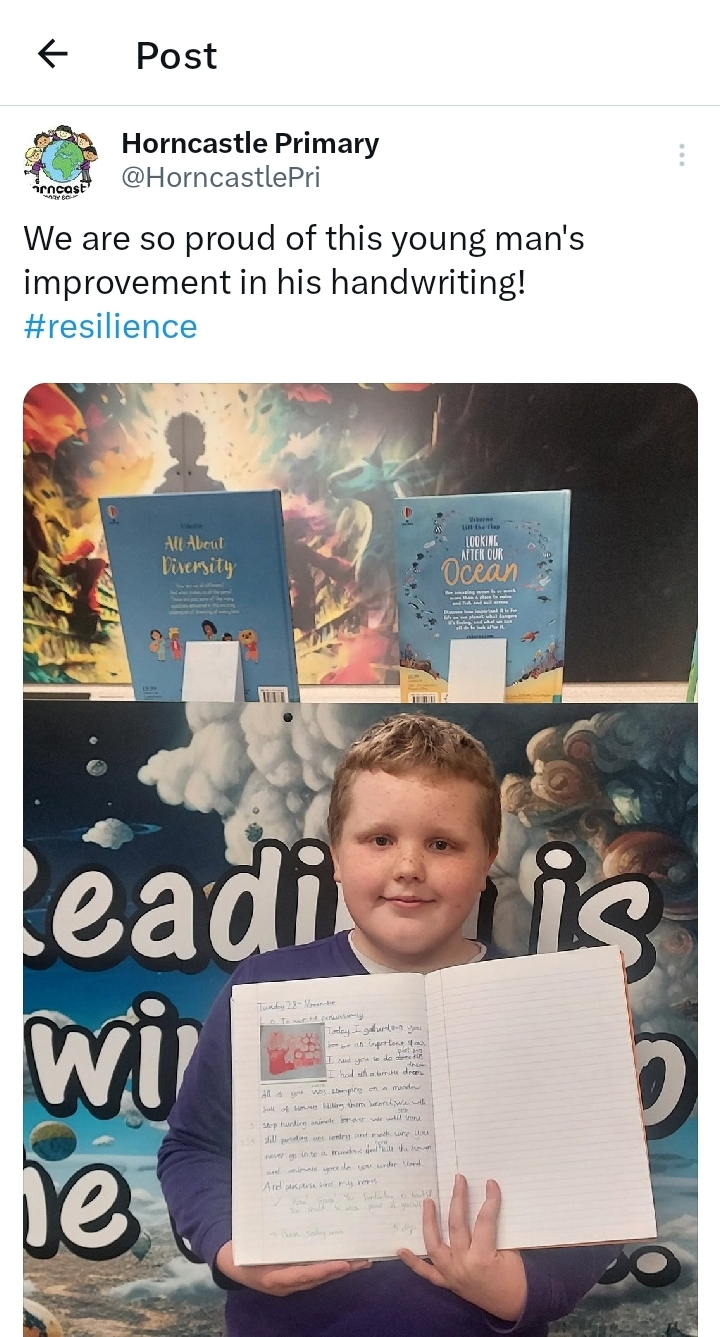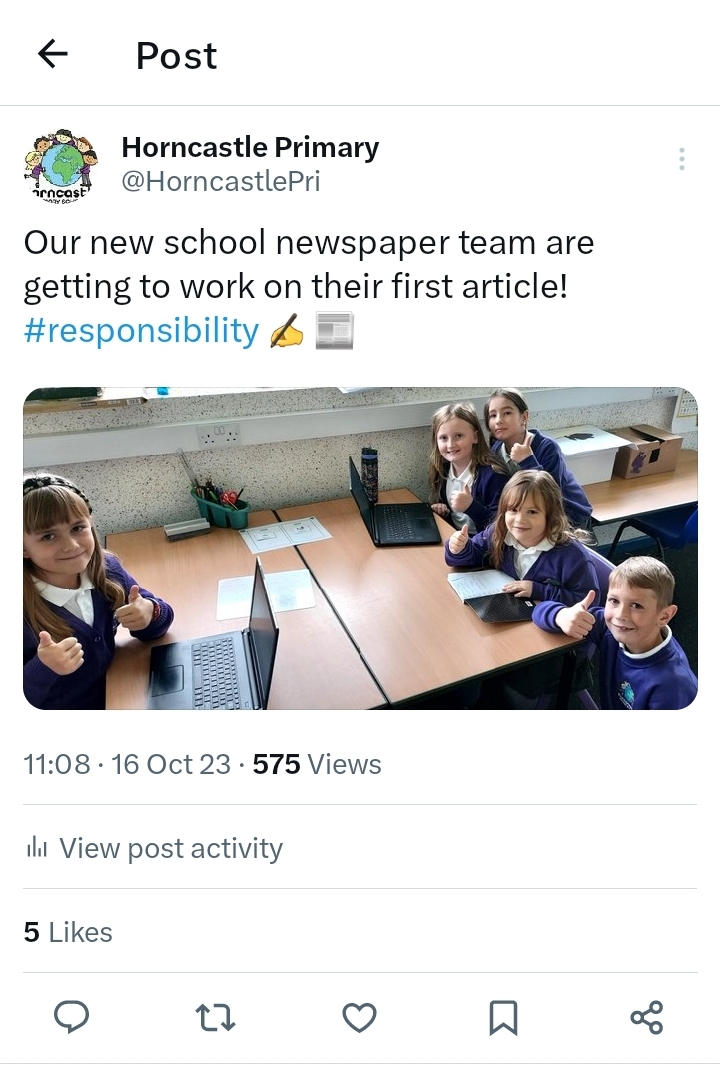Our English writing curriculum is centred around high-quality children’s literature.
The English national curriculum (2014) states that:
‘The overarching aim for English in the national curriculum is to promote high standards of language and literacy by equipping pupils with a strong command of the spoken and written language, and to develop their love of literature through widespread reading for enjoyment.’
We believe the exposure of children’s literature within the primary school setting is vital as a rich context for learning; not only within English as a subject but to support building a reading culture throughout the school.
When approaching writing in the Early Years, it is important to look beyond what is written down. At Horncastle, we provide meaningful experiences, alongside opportunities to develop fine and gross motor skills and these are also recognised for their importance.

At Horncastle, we focus on a single genre of writing each term; the teacher models the writing so that the children have a clear idea of what good writing looks like. Children have multiple opportunities to practice that certain style of writing before moving on. Writing is scaffolded to ensure that children feel confident with the genre they are focusing on. By focusing on specific punctuation and grammar at the start of the unit, children are provided with the tools that they need to be successful in their writing.
We teach grammar (using the Active English approach) and regular spelling and handwriting sessions to ensure that our children have the skills needed to produce coherent pieces of writing and are confident writers.
Active English
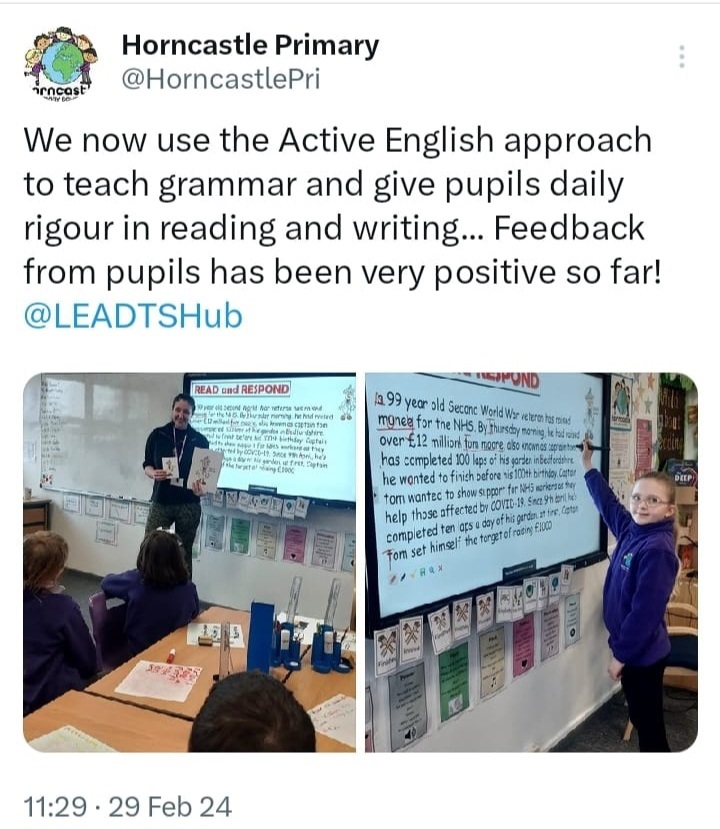
Why is it right for the children at Horncastle?
Our town is situated in rural Lincolnshire. As a result our community is predominantly White British with less diversity than most places in the UK. Through the Power of Reading approach, children are exposed to a wide range of genres. Each term, a focus book is chosen for the children to respond to in their writing: a poetry book, a picture book, a book that celebrates a different culture from around the world and other high-quality stories with characters that are both mirrors and windows to the world.
We focus on non-fiction for the first two weeks of every term. Every class focuses on the same non-fiction genre at the same point in the year. From Year One to Six, we can see a clear progression of skills. We believe it is important for children to revisit the skills they learn when writing a specific genre.
